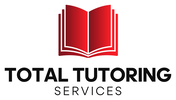|
|
Serving the Greater Baltimore Area, including Baltimore County, Anne Arundel County, Howard County, Montgomery County, Towson, Owings Mills, Reisterstown, White Marsh, Pikesville, Cockeysville, Annapolis, Odenton, Crofton, Gambrills, Severna Park, Davidsonville, Columbia, Clarksville, Laurel, Ellicott City, Silver Spring, Bethesda, Rockville and Potomac.
|
ACT Tutors
Algebra Tutors Biology Tutors Calculus Tutors |
Chemistry Tutors
French Tutors Geometry Tutors German Tutors |
HSPT Tutors
ISEE Tutors Kindergarten Tutors Math Tutors |
Physics Tutors
Reading Tutors SAT Tutors Science Tutors |
Spanish Tutors
Statistics Tutors Test Prep Tutors Writing Tutors |
Total Tutoring Services ©2024


 RSS Feed
RSS Feed